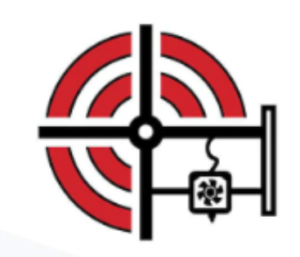This isn’t a silver lining: there are no silver linings in war. But what Velta Holding is doing in Ukraine is a story of how industry can help communities stay resilient in even the harshest circumstances.
The U.S.-Ukrainian titanium miner is building a critical raw materials (CRM) cluster in the Kirovohrad region in central Ukraine. The war has certainly shaped how the project has unfolded, but the company’s Chief Business Development Officer, Artem Yarovinsky, told me how the story started long before the Russian invasion in February 2022.
“After many years in the titanium market, Velta wanted to move beyond being exclusively a raw material producer,” Yarovinsky began. “In 2017, we opened our R&D center in Dnipro, Ukraine, not far from our headquarters. The goal was to climb high in vertical integration, to start producing metallic titanium — the form of the mineral that is used industrially.”
That’s about the time Yarovinsky joined the company. Velta succeeded in developing a new processing technique, and a few years later, the company received its first patent for what is called the Velta Ti process: a less energy-intensive method for processing titanium sponge, compared to the conventional Kroll method. Velta started producing powders for various applications, including additive manufacturing (AM). Then, in early 2022, their scale-up plans were disrupted by the onset of war.
“War, of course, made adjustments to some of our plans,” Yarovinsky said understatedly. “This is what led directly to the CRM cluster, which was made possible because of our achievement of the Velta Ti process. At the same time that this was happening, use-cases from around the world, including use-cases involving the militaries of nations like the U.S. and the UK — submarines in the U.S., fighter jets in the UK — proved that metal AM was being taken more seriously at an industrial scale.
“I can’t get into specifics right now for security reasons, but one of the sectors we’re targeting with titanium AM at the CRM cluster is defense.”
Despite the fact that Ukraine is one of the handful of countries that produces titanium sponge, the war’s disruption of the country’s titanium sponge production facilities means that Ukraine is now in much the same boat as the U.S.—it has to reshore its titanium production. This is also driving Velta to try to more closely link the supply chains in its U.S. and Ukrainian operations.
As Yarovinsky noted, “China and Russia combined control around 70 percent of the titanium market. This means that, especially when it comes to titanium components for aerospace and defense, you need to be able to rely on yourself. You need to be able to secure your supply chains, which means bringing titanium production into your own country, or otherwise, into allied countries.”
The geopolitical issues with titanium are more or less the same as those with rare earths minerals, which have been saturating news cycles lately as the U.S. and China go back-and-forth in tariff and general trade negotiations.
The chair of Velta’s Board of Advisors, Matthew Murray, elaborated on the geopolitical context:
“The highest level of vulnerability in the U.S. supply chain for titanium is processing. Sourcing of the raw material itself also presents challenges, but the weak link for the U.S. is processing,” explained Murray.
“That’s where Velta sees the role we will play as part of the solution, which is why we’re planning to do processing in the U.S. as well as Ukraine. In Ukraine, we already have a small-scale processing operation that is devoted to turning our feedstock into medical device components for amputees coming back from the war. In the U.S., we’re looking to process titanium at a larger scale in order to address the industries we’ve identified there as promising target markets: in addition to medical, and aerospace and defense like Artem mentioned, consumer electronics is an exciting one.”
Velta has been collaborating with the U.S. government for some time now as part of the effort focused on rebuilding Ukraine’s economy. Most recently, this has included discussions with the U.S. International Development Finance Corporation (DFC), an agency that provides various types of support for private-sector projects “primarily in lower and middle income nations.” Relevantly, the DFC announced its first contribution to the U.S.-Ukraine Investment Fund for Reconstruction—a $75 million investment matched by the Ukrainian government—as the agency was doing its first due diligence visit at Velta Holding’s titanium operations.
“We’ve been saying now for years to our U.S. counterparts, in both government and industry, that titanium’s classification as a critical mineral means that we need to bolster the U.S. industrial base for titanium processing, which is a technological issue even more so than it’s a mining issue, at this point,” said Murray.
“We’re seeing that now, under the Trump administration, there’s significant political will to support such an effort. The administration not only negotiated this new bilateral agreement with Ukraine devoted to increasing the production and processing of critical raw materials, but even before that, the Trump administration adopted an executive order to expedite the production and processing of the same materials.”
One of the most noteworthy angles to what Velta is doing with the CRM cluster is the fact that it’s not just about titanium: the company also produces ilmenite, zirconium, and even clay. In turn, Velta’s proficiency with titanium can serve as a model for what the company plans to do with the other resources in its portfolio.
“I believe this is the first project of its kind in Ukraine that can be implemented relatively quickly, and we can use it as a blueprint for other projects throughout the nation,” said Yarovinsky. “The important thing is we haven’t been starting from scratch. We’re an operating enterprise with existing assets, infrastructure, and production capabilities. Our team brings deep technological expertise from across a vertically integrated titanium ecosystem.
“We’re ready to move as quickly as possible to support Ukraine, as well as our allies.”
Murray pointed out that, as disruptive as the war has been to the entire country, including the Velta team, Artem and his colleagues have also demonstrated a level of perseverance that few companies will ever have to imagine:
”From a purely management perspective, the group of individuals who run Velta day-to-day on the ground in Ukraine have become world-class managers at handling all types of risk: the risk of war, logistical risk, cost risk, and political risk,” Murray observed. “Resilience is the term of art to describe what they’ve accomplished. With a level playing field, this group, with their experience, and the tech that Velta has developed, will be a company that I think should prove very difficult to compete with.”
Images courtesy of Velta Holdings
Subscribe to Our Email Newsletter
Stay up-to-date on all the latest news from the 3D printing industry and receive information and offers from third party vendors.






